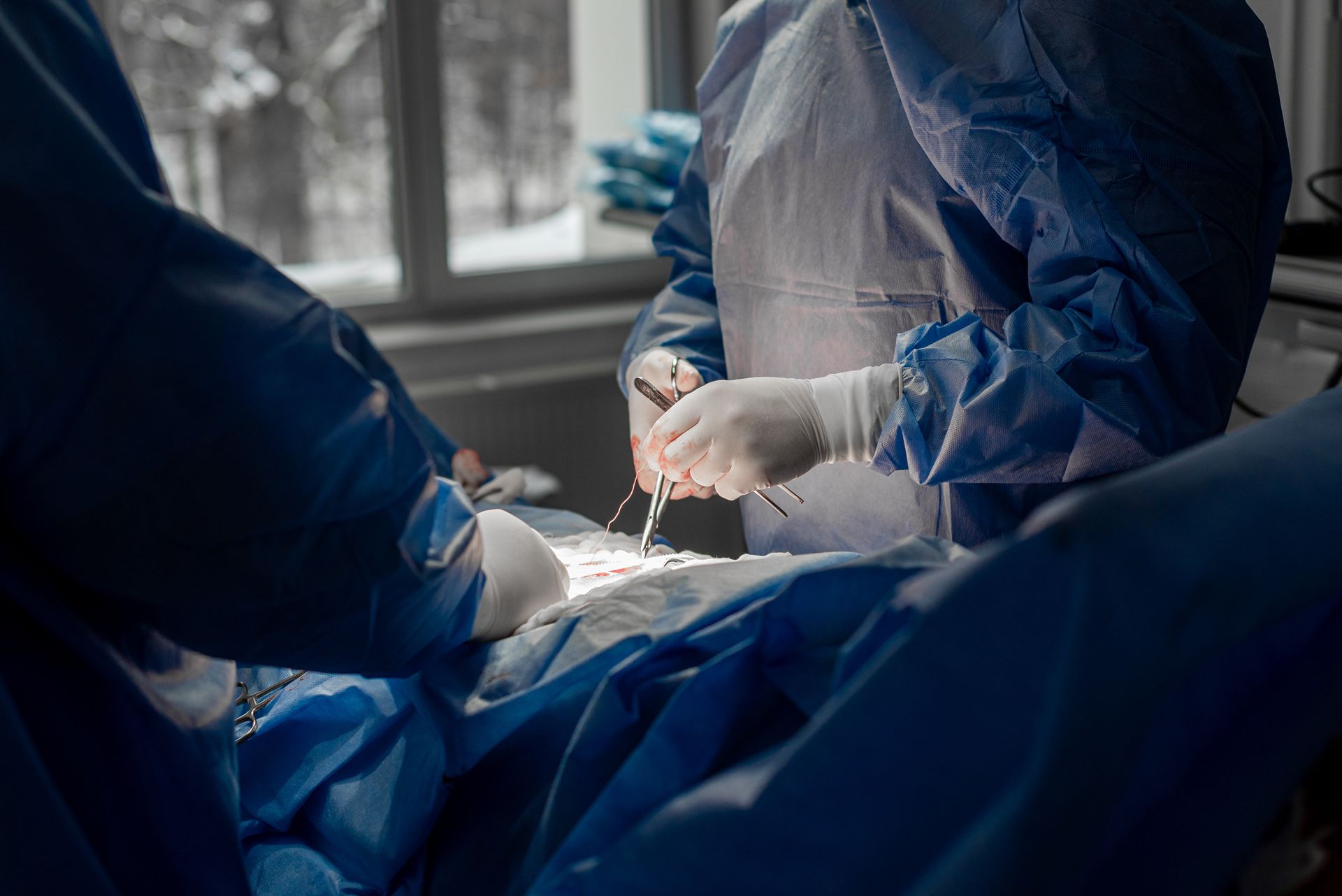Colorectal Surgeon: Demystifying Rectal Cancer

Copper Mountain Surgical is a top provider of colorectal surgery in the Phoenix, AZ area, including Tempe and Mesa, Arizona, now accepting new patients. They offer complete care for different conditions, like rectal cancer. This blog post will help you understand rectal cancer better. It highlights why early detection and advanced surgeries are important. Their team is here to help you navigate this disease. They offer caring and skilled surgical care to achieve the best results.
Understanding Rectal Cancer
Rectal cancer is a common type of cancer that needs a complete plan to achieve the best results for patients. It’s important for doctors and people wanting to learn about this disease, including inflammatory bowel diseases like Crohn’s disease, to understand its basics.
In simple terms, rectal cancer happens when harmful tumors form in the rectum, which is the last part of the large intestine. This disease is usually seen as part of colorectal conditions because it is closely linked to colon cancer and related conditions such as ulcerative colitis.
What Is Rectal Cancer?
Rectal cancer happens when abnormal cells grow uncontrollably in the rectum. The rectum is the last part of the large intestine, near the anus. This growth starts when healthy cells in the rectum change their DNA. These changes create cancerous lumps.
The abnormal cells can spread to nearby tissues. They might also reach other body parts through the lymphatic system or bloodstream. Rectal cancer is often called colorectal cancer, which includes both colon and rectal cancers.
Finding rectal cancer early is very important for successful treatment. It helps to know the risk factors, symptoms, and screening options. This knowledge can lead to better results for patients and shows why good colorectal care matters.
The Importance Of Early Detection
Early detection is very important for rectal cancer. It can significantly affect how well treatment works and the long-term health of patients. If rectal cancer is found early, it is often very treatable. This highlights the need for proactive steps, such as regular colorectal screening.
Regular colorectal screening, especially colonoscopies, is key for finding and removing precancerous polyps. This helps prevent them from turning into full-blown rectal cancer. When cancer is caught early, treatment options, including robotic colorectal surgery, sacral nerve stimulation, and rectal cancer surgery by a colorectal surgeon Phoenix for cancer, are usually less invasive, and there is a lower chance of the cancer coming back.
By following the recommended screening guidelines and quickly addressing any worrying symptoms, people can boost their chances for early detection and successful treatment. Early detection not only increases survival rates but also helps enhance the quality of life for those with rectal cancer. See more on Revealing Screening Guidelines: Colorectal Surgeon.
Diagnosis And Staging
Early and accurate diagnosis is key for knowing the stage of rectal cancer. This information helps in making treatment decisions and predicting how patients will do. Medical professionals use different tests and procedures for this purpose. Each method is important in fully checking for rectal cancer.
These tests give crucial facts about the size, location, and spread of the tumor. This helps healthcare providers create treatment plans that fit each patient's needs. Also, staging sets a common way to label the severity of rectal cancer. This helps medical teams talk clearly with each other and also guides the prognosis.
Common Diagnostic Tests
When doctors diagnose rectal cancer, they at a medical center use different tests. These tests help them find out if cancer is present, where it is located, how big it is, and whether it has spread to nearby lymph nodes or other parts of the body.
Here are some common tests for rectal cancer:
- Colonoscopy: This test uses a thin, flexible tube with a camera to look at the whole colon and rectum. It helps doctors see and take samples from any suspicious growths.
- Biopsy: During a colonoscopy or imaging tests, doctors take tissue samples. A pathologist then checks these samples under a microscope to see if cancer cells are there.
- Imaging Tests: CT scans, MRIs, and PET scans create detailed pictures of the rectum and other organs. These images show the size, location, and possible spread of the cancer.
These tests are very important for correctly staging the cancer. They guide treatment plans and help track how well the therapy is working.
Staging And Its Significance
Cancer staging is a crucial aspect of rectal cancer diagnosis as it helps determine the extent of the disease's spread within the body. Using the TNM system, healthcare professionals can classify the cancer based on the tumor size (T), lymph node involvement (N), and metastasis (M), which refers to the spread to distant organs.
Here's a table summarizing the TNM staging system:
| Stage | Tumor (T) | Lymph Nodes (N) | Metastasis (M) |
|---|---|---|---|
| Stage 0 | Tis (in situ) | N0 (no spread) | M0 (no spread) |
| Stage I | T1-T2 | N0 (no spread) | M0 (no spread) |
| Stage II | T3-T4 | N0 (no spread) | M0 (no spread) |
| Stage III | Any T | N1-N2 (spread to nearby lymph nodes) | M0 (no spread) |
| Stage IV | Any T | Any N | M1 (spread to distant organs) |
Understanding the stage of rectal cancer is essential for determining the most appropriate treatment approach.
Symptoms And Diagnosis Of Rectal Cancer
Knowing the signs of rectal cancer is important for getting help on time. Still, early-stage rectal cancer might not show clear symptoms. This is why regular screenings are so important.
If you notice any ongoing changes in your bowel habits or other worrying signs, you should see a healthcare professional. They can give you a proper diagnosis and check how you are doing. Finding cancer early and getting treatment quickly can lead to better results and a more positive outlook.
Common Symptoms And Warning Signs Of Rectal Cancer
It's important to know the signs of rectal cancer. Finding it early can lead to better treatment. Some people might not have any symptoms at first, but it's still good to learn what to watch for.
One common sign of hemorrhoid issues is a change in bowel habits. This can mean diarrhea, constipation, or feeling like you did not finish a bowel movement. Rectal bleeding, whether it's bright red or dark, is another serious sign to pay attention to. You might also feel pain, cramping, or discomfort in your belly.
Unexplained weight loss, feeling very tired, and weakness can also mean rectal cancer. If you notice any of these signs, especially if they don’t go away or get worse, make sure to see a healthcare professional right away.
Screening And Diagnostic Tests For Rectal Cancer
Rectal cancer screening helps find the disease early when treatment works best. It is suggested for people over 50 or those at higher risk from family history or other factors.
You can use several screening methods:
- Fecal Occult Blood Test (FOBT): This test looks for hidden blood in the stool. Blood can mean rectal cancer or other colorectal conditions.
- Flexible Sigmoidoscopy: A thin, flexible tube with a camera checks the rectum and lower colon for problems.
- Colonoscopy: This is the best method for colorectal cancer screening. It lets doctors fully examine the colon and rectum and remove any suspicious polyps.
Getting regular screenings, living a healthy lifestyle, and seeing a doctor on time can greatly lower the risk of rectal cancer. It can also help in finding and treating it early.
Conclusion
Rectal cancer is a serious issue that needs early detection for the best treatment. It's important to know the signs and the tests used for diagnosis. If you notice any warning signs, please reach out to a healthcare professional for the right screening. Finding the problem early can greatly help the results. At
Copper Mountain Surgical we focus on giving full support to patients with rectal cancer. Your health is very important to us, so don’t wait,
contact us for expert help and care.




